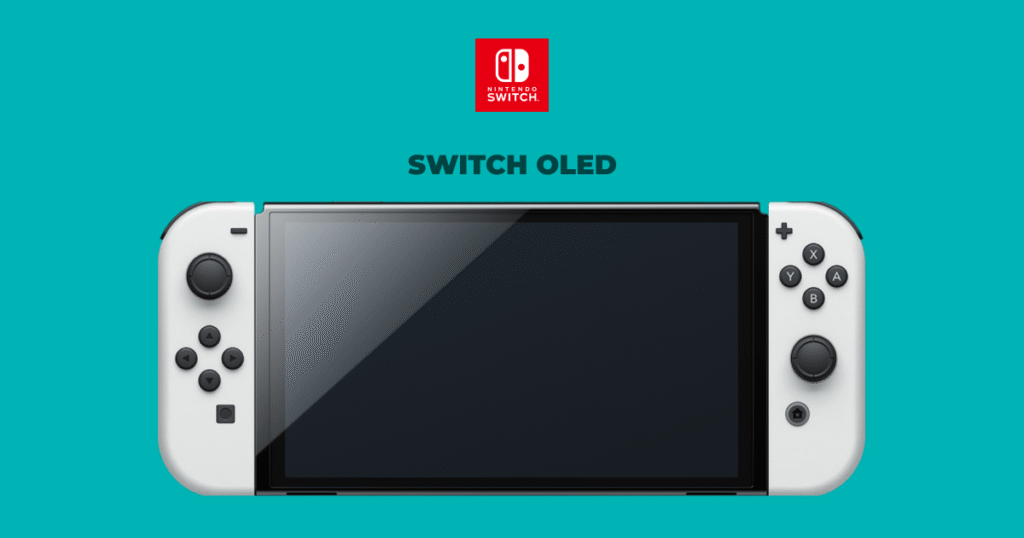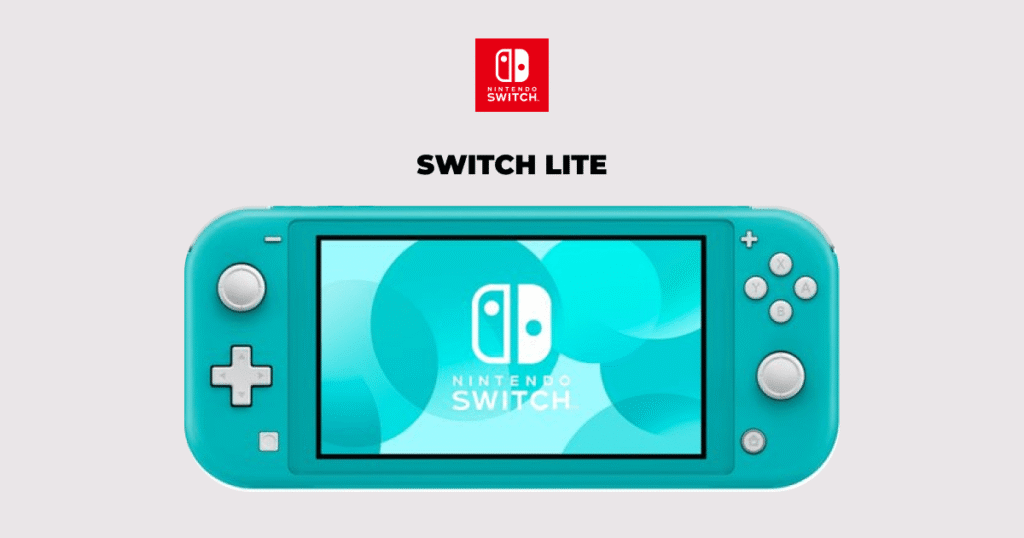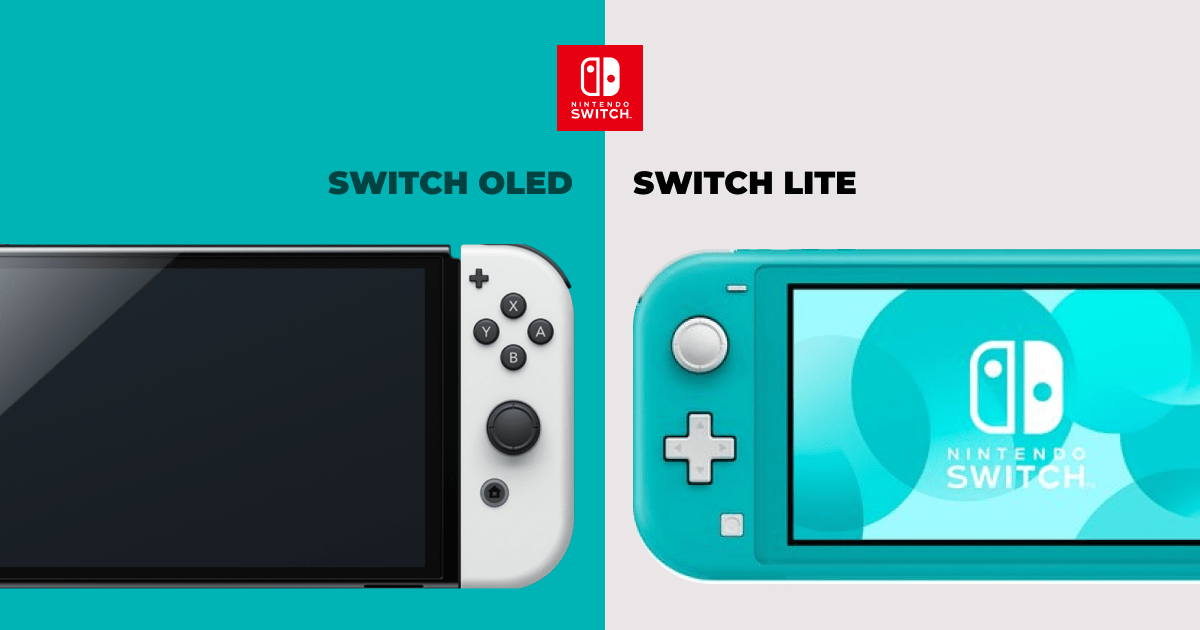The Nintendo Switch family keeps growing, but choosing between the Switch OLED and Switch Lite can be tricky. Whether you’re a seasoned gamer or shopping for a kid’s first console, knowing the difference is key. Let’s break it down simply—no fluff, no confusion—just real talk.
Display That Changes Everything
Switch OLED comes with a 7-inch OLED display, and it’s absolutely stunning. Colors pop. Blacks are deep. Games like Zelda: Tears of the Kingdom feel alive, especially in handheld or tabletop mode.

Meanwhile, Switch Lite has a smaller 5.5-inch LCD screen. It still runs at 720p and gets the job done. But if you’re someone who notices visuals, the OLED screen is a clear winner.

✅ Verdict: OLED = richer visuals. Lite = simple and sharp, but less immersive.
Portability & Play Styles
Switch Lite is all about compact comfort. It’s lightweight, durable, and built for travel. It slips into your bag without effort and is great for kids or casual players.
On the other hand, Switch OLED is slightly larger and heavier but still portable. Plus, it gives you three ways to play—handheld, tabletop (thanks to a wide kickstand), or on a TV via docking.
✅ Verdict: Lite = best for pure handheld users. OLED = flexibility for every scenario.
Features & Flexibility
Switch OLED packs serious convenience. You get detachable Joy-Cons, a wide adjustable stand, and 64GB of internal storage. Even better, there’s an Ethernet port in the dock for smoother online gaming.
Switch Lite is stripped down: no TV support, no detachable Joy-Cons, and a smaller 32GB storage. It’s a budget-friendly pick, but it sacrifices versatility.
✅ Verdict: OLED = all-in-one powerhouse. Lite = affordable and focused.
Storage & Sound
Storage matters. With 64GB on the OLED, you can store more games without a microSD card right away. Sound quality is better too, thanks to enhanced front-facing speakers.
In contrast, Switch Lite has 32GB. That fills up fast, especially with big digital downloads. Its sound is okay but can be muffled more easily during handheld play.
✅ Verdict: OLED = more storage and better sound. Lite = tight on both fronts.
Battery Life That Keeps You Playing
Switch OLED offers 4.5 to 9 hours of playtime depending on the game. That means longer gaming sessions without scrambling for a charger.
Switch Lite gives 3 to 7 hours, which works for short trips or daily commutes. Still solid, but not quite as enduring.
✅ Verdict: OLED wins again, especially for longer gaming marathons.
Pricing – What’s the Cost?
This is where things get clear-cut:
- Switch OLED costs around $349
- Switch Lite is much more wallet-friendly at $199
If you’re buying for a child or looking for a second console, the Lite might make more sense. But if you want the full Switch experience, OLED is worth the extra bucks.
✅ Verdict: OLED = premium price for premium features. Lite = great for tight budgets.
Quick Glance: Comparison Table
| Feature | Nintendo Switch OLED | Nintendo Switch Lite |
|---|---|---|
| Screen | 7″ OLED, 720p | 5.5″ LCD, 720p |
| Modes | Handheld, Tabletop, TV | Handheld only |
| Storage | 64GB (expandable) | 32GB (expandable) |
| Battery Life | 4.5–9 hours | 3–7 hours |
| TV Dock Support | Yes | No |
| Joy-Cons | Detachable | Built-in only |
| Weight | ~0.93 lbs (with Joy-Cons) | ~0.61 lbs |
| Price (USD) | $349 | $199 |
Fun Fact You Didn’t Know
Did you know the Switch Lite can’t play some games out of the box? If a game needs motion controls or Joy-Con features, you’ll need to buy extra controllers separately—and still, you won’t be able to play them on a TV.
So while the game library is shared, you may lose out on gameplay features with the Lite.
Final Verdict: Which One Should You Buy?
- Go with the Nintendo Switch OLED if:
- You want stunning visuals, more play options, and better speakers.
- You’ll use TV mode or multiplayer often.
- You game regularly and want future-proof features.
- Choose the Switch Lite if:
- You need a lightweight, budget-friendly system.
- You’re buying for a kid, traveling a lot, or just play solo.
- You don’t care about docking or TV mode.
💡Bottom Line: Both models are brilliant in their own way. It all depends on how you game and where you play. Think about your lifestyle—and make your move wisely!
Stay tuned to Baskin Gamer as we bring you the latest updates on game news, releases, and more!

